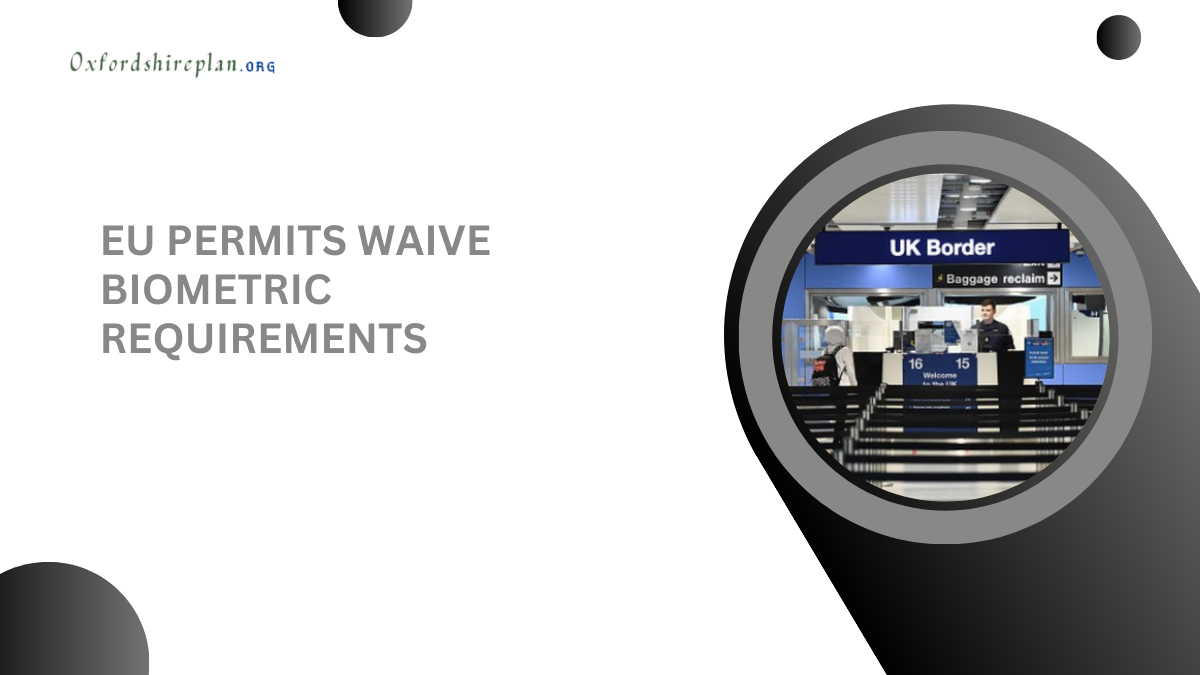The UK government has announced its plans to implement the necessary adjustments to accommodate the European Union’s new digital Entry/Exit System (EES) by October 6, 2024, as part of an update on changes to border controls with France. This move aims to ensure a smooth transition and compliance with the EU’s new system, which is set to come into effect later this year.
Contents
- Enhanced Border Security: The Digital Entry/Exit System
- Creating a Digital Record
- Exemptions for Eligible Travelers
- Residency Permits in France
- Valid Residency Permits from EU Member States
- UK Nationals and Brexit Withdrawal Agreement
- Minor Travelers and DCEM Requirements
- Registration Requirements for Non-EU Travelers
- Port Delays Continue to Cause Concern
Enhanced Border Security: The Digital Entry/Exit System
Creating a Digital Record
As the European Union enhances its border security measures, the innovative digital Entry/Exit System (EES) will require travellers to create a digital entry record when entering the Schengen Area. Upon arrival at border crossing points, travellers must provide essential biometric data, including fingerprints and facial recognition, to facilitate a secure and efficient entry process. This cutting-edge system seeks to bolster security, streamline border control procedures, and enhance the overall travel experience for visitors.
Exemptions for Eligible Travelers
Certain travellers holding specific EU identity documents will be exempt from providing biometric data. This exemption applies to individuals holding designated residency permits, identity cards, and other valid travel documents issued by EU member states. To qualify for this exemption, travellers must present their eligible documents to border authorities, ensuring a seamless and hassle-free entry into the Schengen Zone.
Residency Permits in France
In France, specific residency permits granted under the Withdrawal Agreement qualify for exemption from the biometrics requirement. These include:
– Temporary residency permits
– Five-year residency permits
– Ten-year residency permits
– Permanent residency permits
Valid Residency Permits from EU Member States
In addition, valid residency permits from France and other EU member states will be recognized as exemptions from EES registration. This includes permits issued for various reasons, such as employment, education, or family reunification. Holders of these eligible documents will be exempt from providing biometric data, allowing for a smooth and hassle-free entry into the Schengen Zone.
UK Nationals and Brexit Withdrawal Agreement
UK citizens who have preserved their rights under the Brexit Withdrawal Agreement are exempt from registering with the European Entry/Exit System (EES), provided they carry the required documents. This exemption applies to UK nationals who have maintained their residency rights in the EU, ensuring a seamless transition for those impacted by the Brexit agreement and facilitating their travel within the Schengen Zone.
Minor Travelers and DCEM Requirements
To be exempt from the European Entry/Exit System (EES) requirements, minor travellers, whether accompanied or travelling alone, must hold a Document de Circulation pour Étranger Mineur (DCEM). This document is crucial for minors to bypass EES registration and ensure a smooth entry into the Schengen Zone, facilitating travel without unnecessary delays or complications.
Registration Requirements for Non-EU Travelers
The European Entry/Exit System (EES) requires travellers from non-EU nations, such as the UK and the US, exempt from visa requirements, to register before each entry into the Schengen area. This mandatory registration process applies universally to all travellers from these countries, including frequent visitors to the Schengen Zone, aiming to bolster security and streamline border control procedures.
Port Delays Continue to Cause Concern
British officials warn of potential port disruptions once the European Entry/Exit System (EES) comes into effect. Their primary concern is that introducing biometric requirements, such as facial recognition and fingerprint scanning, may cause substantial delays and congestion at ports unless the EU grants a further extension to the implementation timeline.
The UK government has been engaged in talks with EU officials, as reported by The Source, seeking an extension on the implementation of the European Entry/Exit System (EES). This effort aims to mitigate potential disruptions at major ports and facilitate a seamless transition to the new system.
Meanwhile, Business Matters has underscored the potential consequences of the EES on travel and trade, cautioning that without a delay, the system’s introduction could result in substantial backlogs at border checkpoints, leading to significant congestion and delays.
As part of preparations for the European Entry/Exit System (EES) implementation, French authorities have procured 544 kiosks and 250 tablets to collect biometric data from ferry passengers, including facial recognition and fingerprints.
This measure aims to alleviate concerns about potential queues and delays for UK travellers to France once the EES is operational. Meanwhile, the UK is pushing for an additional extension to ensure that ports are adequately equipped to handle the new system, minimizing potential disruptions and ensuring a smoother transition.
Click Here to read more

Jonathan is an avid automobile enthusiast who is passionate about all things on wheels. From the latest car models to classic vintage rides, I love exploring the automotive world’s intricate details and engineering marvels. With years of experience in test-driving, reviewing, and analyzing cars, I provide readers with comprehensive insights and honest opinions.
















